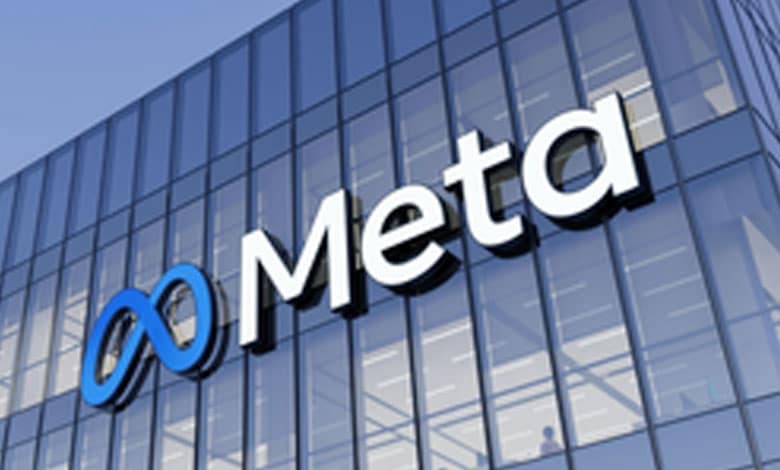NCLAT Grants Relief to Meta: Stays CCI Ban on WhatsApp and Reduces Fine
"NCLAT grants Meta relief by staying the CCI's five-year ban on WhatsApp and reducing the fine to 50%. The decision provides temporary respite for Meta amidst ongoing concerns over its data-sharing practices in India."

In a significant development for Meta, the parent company of WhatsApp, the National Company Law Appellate Tribunal (NCLAT) on January 23 temporarily stayed the five-year ban imposed on WhatsApp by the Competition Commission of India (CCI).
The CCI had previously ordered the ban due to concerns over WhatsApp’s data-sharing practices, specifically the sharing of user data with other Meta-owned platforms like Instagram and Facebook.
Table of Contents
The NCLAT’s decision is seen as a major relief for Meta, which has over 500 million active WhatsApp users in India.
NCLAT Stays CCI’s Ban on WhatsApp’s Data-Sharing Practices
The NCLAT bench, led by Justice Ashok Bhushan, ruled that a complete ban on WhatsApp could severely disrupt its business model in India, a crucial market for the company.
The tribunal noted that WhatsApp’s services are deeply integrated into the daily lives of millions of Indian users and that such a drastic measure could cause widespread inconvenience.
The bench further observed that the upcoming data protection law in India might address concerns related to data privacy, thus offering a potential regulatory framework to resolve these issues.
This ruling comes after Meta challenged the CCI’s order, which had been issued in November 2022. The CCI’s decision to impose a penalty of Rs 213 crore (approximately $25 million) on Meta for allegedly abusing its dominant position was accompanied by a directive to stop WhatsApp from sharing user data with other Meta products and companies for advertising purposes for a period of five years.
NCLAT Directs Meta to Pay Half of the Rs 213 Crore Fine
In addition to staying the ban, the NCLAT ordered Meta to deposit 50 percent of the fine imposed by the CCI, amounting to Rs 106.5 crore, within the next two weeks.
Meta has already paid 25 percent of the penalty, which means it will need to deposit an additional Rs 53.25 crore as part of this interim relief order.
This order follows Meta’s appeal against the CCI’s ruling, which accused WhatsApp of abusing its dominant position in the Indian market by coercing users into accepting mandatory data-sharing policies that could potentially harm consumer privacy.
WhatsApp’s 2021 privacy policy update had been a key point of contention, as it allowed the platform to share user data with other Meta-owned companies like Instagram and Facebook without an opt-out option for users.
Impact of the CCI Order on Meta and the Industry
Meta had argued that the CCI’s order could set a damaging precedent for the entire tech industry. The company contended that the directive to halt data-sharing practices would have widespread ramifications beyond WhatsApp, affecting the operations of other digital platforms in India as well.
Meta’s legal team emphasized the need for a prompt hearing, given the potential consequences for businesses operating in the digital space.
WhatsApp’s revised privacy policy, which triggered the CCI’s probe in March 2021, was seen by many as a direct challenge to India’s growing concerns over data privacy and security.
The policy revision was intended to integrate WhatsApp’s data collection with other Meta services for targeted advertising, a move that raised alarms among privacy advocates and regulators alike.
The CCI initiated an investigation into these practices, ultimately concluding that WhatsApp’s data-sharing terms violated the Competition Act.
The Role of Data Protection Laws in the Future of Data Privacy in India
The NCLAT’s decision to stay the ban and take into account the future data protection law highlights the evolving regulatory landscape around data privacy in India.
The Indian government has been working on a comprehensive data protection bill, which is expected to address issues such as data sharing, consent, and privacy for users.
Experts suggest that once the law is enacted, it could provide more clarity on how companies like Meta should handle user data and may offer a legal framework for companies to follow while balancing user privacy and business interests.
The NCLAT’s ruling could also have broader implications for other tech companies operating in India. With data privacy becoming an increasingly important issue worldwide, businesses must ensure they comply with local regulations, including those governing user consent and data sharing.
The outcome of the ongoing legal battles between Meta and the CCI will likely set the tone for future cases related to data privacy and the digital economy in India.
Also Read | WhatsApp Privacy Policy Under Fire! Meta Takes CCI to NCLAT Over ₹213 Crore Penalty
WhatsApp’s Position in India: A Market at the Crossroads
India remains a crucial market for WhatsApp, with the messaging app boasting more than 500 million monthly active users.
This vast user base has made India an integral part of Meta’s global operations, and the company is keen to avoid any disruptions to its services in the country.
The NCLAT’s stay on the CCI’s ban is seen as a temporary reprieve, allowing WhatsApp to continue operating without significant changes to its data-sharing policies while the case is further reviewed.
However, the legal battle is far from over. While the NCLAT has provided some relief, the final verdict on whether the CCI’s original order will stand is still pending.
Meta will likely continue to challenge the CCI’s findings in a bid to ensure that its data-sharing practices remain unaffected by the regulatory environment in India.

